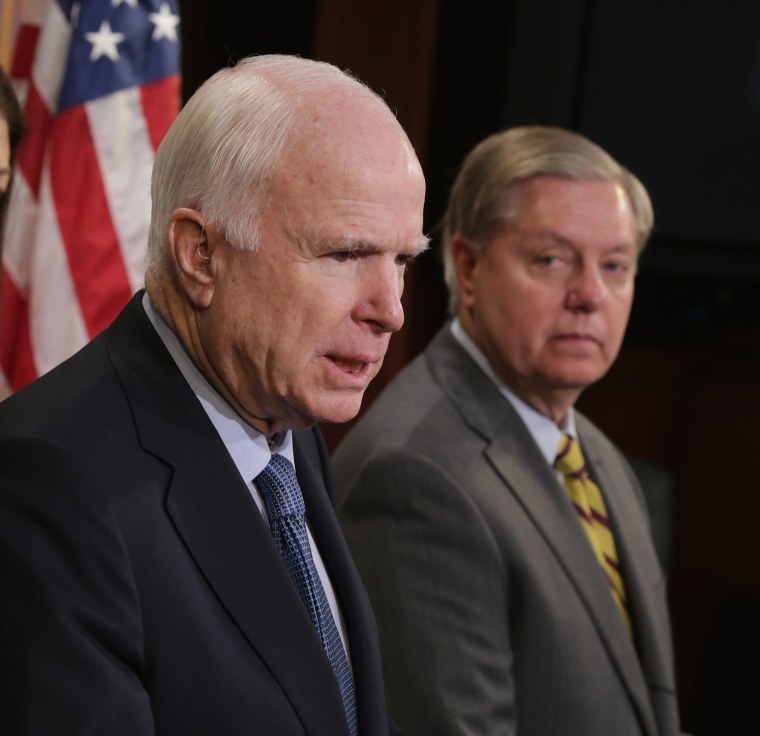Congressional Republicans have largely sought to minimize differences between President-elect Donald Trump and GOP establishment orthodoxy on a variety of issues, but signs of tension have begun to emerge over U.S. relations with Russia.
Over two days, Republicans in the Senate have publicly disagreed with or questioned decisions and statements made by Trump amidst rising tensions and allegations of Russian interference with the U.S. presidential election.
It's a different tact than Republicans have taken on disagreements over domestic policy. Elected officials in Congress have either downplayed division or stayed silent on issues of infrastructure spending, trade and entitlement reform.
Related: Why the CIA Thinks Russia Wanted Trump to Win
But since Trump’s announcement of his intention to appoint ExxonMobile CEO Rex Tillerson to be secretary of State, at least four Senate Republicans have indicated that Tillerson should have to answer tough questions about his views on Russia and what is considered to be his close relationship with President Vladimir Putin.
Sen. Lindsey Graham, R-S.C , said he has “many questions” for Tillerson. “I expect the US-Russian relationship to be front and center in his confirmation process,” he said in a statement.
Sen. Marco Rubio, R-Fla., a member of the Senate Foreign Relations Committee, also said he has “serious concerns about his nomination.”
“The next secretary of state must be someone who views the world with moral clarity, is free of potential conflicts of interest, has a clear sense of America's interests, and will be a forceful advocate for America's foreign policy goals to the president, within the administration, and on the world stage,” Rubio added.
And Sen. John McCain, R-Ariz., told NBC News he also has concerns over Tillerson's ties with Russia and that it would be the subject of the confirmation hearings.
Likely to be dissected during the confirmation process is Tillerson's business interests and questions of how he would deal with any possible conflict. ExxonMobile is set to make hundreds of billions of dollars, for instance, if sanctions are lifted from Russia placed on the country after their invasion of Ukraine and Crimea.
"Whose interest is served by that?" asked House Minority Leader Nancy Pelosi on MSNBC's Andrea Mitchell Reports Tuesday.
Concern over Tillerson comes just one day after Senate Majority Leader Mitch McConnell said he backs a Senate investigation into the Russian hacking of U.S. political entities, including the Democratic National Committee. Trump has called a CIA intelligence report confirming the Russian ties "ridiculous."
While McConnell said that oversight of Russia must not become a partisan issue, he added that Republicans have always been critical of Russia.
"It defies belief that somehow republicans in the senate are reluctant to either review Russian tactics or ignore them," McConnell said.
But the incoming Republican president has espoused a dramatically different view of Russia. He complimented Putin throughout the campaign and has said that he’d like a more friendly and cooperative relationship with the country that 2012 Republican presidential nominee, Mitt Romney, called the United States’ main geopolitical threat.
Gary Schmitt, co-director of the security studies center at the American Enterprise Institute, said the internal debate between Republicans, who have been more suspicious of Russia historically, is going to play out in through policy machinations and in the confirmation of nominees.
“This is one of these times when one party controls both the executive branch and two houses of Congress, but they’re not in sync with the policy agenda. So it’s a real question of if partisan loyalty overtakes substantive policy and personal prerogatives,” Schmitt said.
“This is really quite dramatic and quite unique,” he added about the intra-party disagreement.

